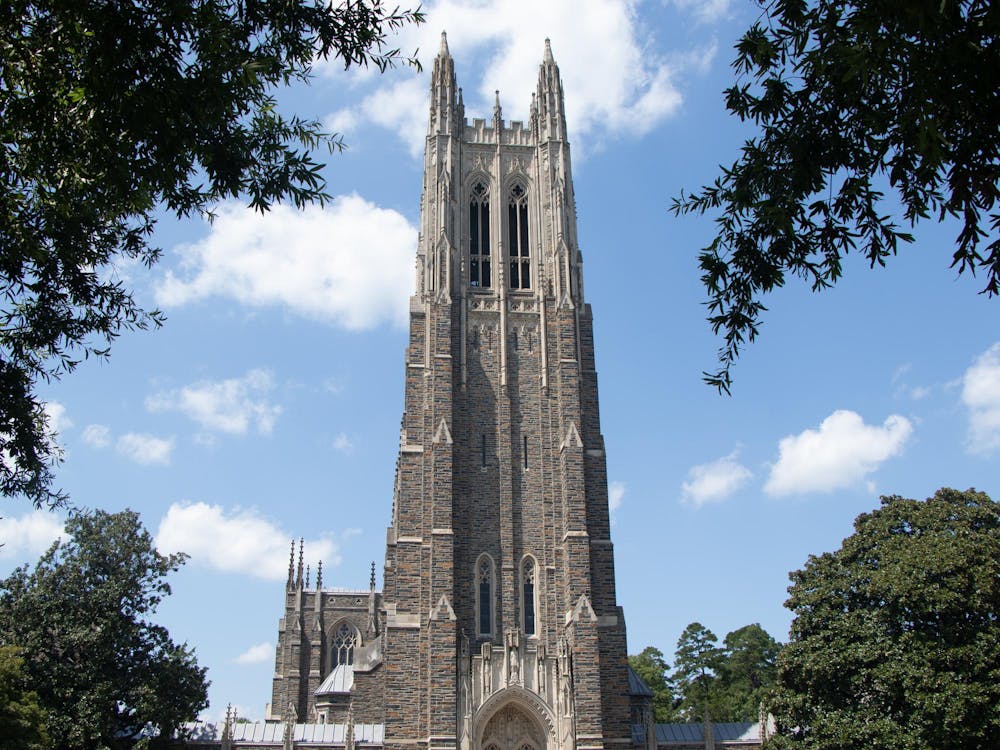Following the Supreme Court's decision to end race-based affirmative action in college admissions, colleges across the nation, including Duke, have begun to sunset race-based scholarship programs under additional pressure from state governments and advocacy organizations.
Duke recently ended the Reginaldo Howard Memorial Scholarship Program for “top applicants of African descent,” in response to “changes to the legal landscape related to race-based considerations in higher education.”
The University will replace the scholarship with the Reginaldo Howard Leadership Program, which will be open to all undergraduate students regardless of race and will “not include a competitive selection process.”
Other universities made similar program cuts, guided by legislative decisions after the Supreme Court decision, pressure from outside organizations and threats from governmental bodies.
Ohio Attorney General Dave Yost wrote a memo to the state’s colleges about the ruling last year, later declaring that race-based scholarships were unconstitutional.
The University of Toledo, based in Ohio, has paused distributing scholarships for programs that consider race. As of March 8, at least seven public universities in Ohio were reviewing scholarship programs following the Attorney General’s remarks.
Following the Supreme Court’s decision, Missouri Attorney General Andrew Bailey wrote a letter to universities across the state urging them to immediately end race-based affirmative action policies and scholarships. The University of Missouri system complied, announcing it would stop using race and ethnicity as a factor in scholarship programs.
The University of Alabama ended the National Recognition Scholars program for incoming students. The scholarship was awarded to high-achieving students from rural towns or minority groups.
The University of Texas at Austin announced an end to the Monarch Scholarship, a program that provides resources, financial assistance and community support for undocumented students. The program will no longer be available for future students at the university.
In Kentucky and Texas, state legislators have prompted these changes.
Texas Gov. Greg Abbott signed Senate Bill 17 into law in 2023, prohibiting public higher education institutions from establishing or maintaining diversity and equity inclusion offices. The law was frequently referenced by those concerned about the decision to end the Monarch Scholarship.
The Kentucky House of Representatives passed a March bill to end DEI programs in Kentucky higher education, including a ban on race-based scholarships. Many other states are also passing similar legislative changes.
In addition to governments, independent advocacy organizations have weighed into the conversation, putting additional pressure on universities. The Equal Protection Project, founded by Cornell Law School professor William Jacobson, has filed complaints against universities for their race-based scholarship programs.
The project filed a complaint against Kansas State University in August about the school’s Garmon Scholarship, which was given to applicants “of an ethnic group that has been historically and traditionally oppressed in the achievement of academic and leadership endeavors.” The project also filed a complaint against Western Kentucky University in October for two scholarship programs aimed at minority athletes and students at the university.
Get The Chronicle straight to your inbox
Signup for our weekly newsletter. Cancel at any time.

Jothi Gupta is a Trinity junior and an enterprise editor of The Chronicle's 120th volume.

